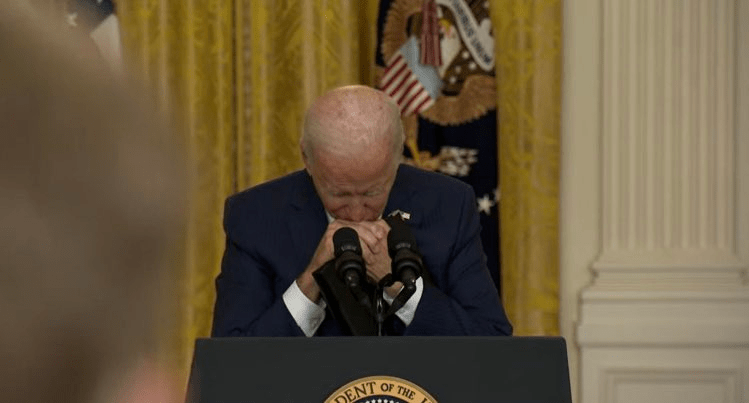Bush said on unleashing the War on Terror, “This war will not be quick and this war will not be easy…It [Afghanistan’s history] is one of initial success followed by long years of floundering and ultimate failure.” Then with a grin, “We’re not going to repeat that mistake.” As irony has it, they did. Twenty years later, the exact words found an echo in the halls of Biden’s White House.
This article, which is a part of a two-part series on Afghanistan, will discuss the errors in judgement by the Biden administration. Then, it will explore alternative points of view. It will also answer what the costs of the twenty-year-long Afghanistan war are and break down how they were financed. In the end, the article will raise a concern about the lack of empathy for Afghan civilians. The next part will focus on the previous US administrations and disclose the secret U.S. history of ‘misjudgements and shortcomings’. The two articles together aim to argue that the Afghanistan war was a ‘bipartisan disaster’ which renders the finger-pointing and blame games in the American media discourse unavailing.
The Biden administration’s ‘plan’ for the emergency evacuation of American troops from Afghanistan was tethered to the sentimental and purely symbolic deadline of the 20th anniversary of 9/11. Despite warnings from military advisors and crucial intel sources, Biden chose to enforce the hasty deadline.
Consequently, the Taliban’s resilience, coupled with its grave underestimation by the U.S. administration, was a recipe for disaster. Even Biden confessed to the situation having unfolded “more quickly than anticipated.” Biden’s credibility took a significant hit after this confession. According to Reuter’s survey, “Biden’s approval rating sits at the lowest level of his presidency after the Taliban took control of Afghanistan in an upheaval that sent thousands of civilians and U.S. military allies fleeing for their safety.”
Biden’s Moral Betrayal
In January 2021, Democrats set the expectation: “Biden will restore America’s moral leadership.” Fast forward eight months, and we are confronting quite the opposite. The P.O.T.U.S. loftily defended the fall of Kabul, “American troops cannot and should not be fighting in a war and dying in a war that Afghan forces are not willing to fight for themselves.” Elliot Ackerman, a former U.S. Marine, intelligence officer, political author, and most importantly, a veteran in both the Iraq and Afghanistan war, calls it “a slap in the face not only to our Afghan allies but to Americans — such as me — who mixed our spilt blood with theirs.” Ackerman then recounts war stories of the time Afghan soldiers went above and beyond to save American lives.
Moreover, Biden’s justification did not address the root cause behind the fall of Kabul. The U.S. funded corruption hollowed out the foundation of the Afghan military, which collapsed before our sight. ‘Ghost soldiers’ is a term that frequently comes up in the context of the Afghan military. They refer to Afghan soldiers that exist on paper – payrolls to be specific – but not in reality. The existence of ghost soldiers allows a few elite to bag their salaries. The Afghanistan Papers prove that Biden was personally, elaborately briefed about ‘ghost soldiers’ filling up 50%-70% of the police posts. But those concerns were silenced. Whereas, the remaining, real Afghan forces had low morale to defend a corrupt, inefficient system that unfairly benefited a few.
Following their hasty exit, the U.S. troops left several American partners deserted in Afghanistan. In his article, Mr Deepanshu Mohan, associate professor of Economics at J.G.U., elaborates how abandoning and insulting American allies’ blemishes Biden’s long-term commitment to human rights. These allies always stood by the U.S. All told, the Biden administration’s public posture sends the clear message that “Afghan lives just don’t matter”.
In Defence of Biden
The consequences of the US forces’ exit were always going to be, as Trump put it, ‘both predictable and unacceptable’. However – in Biden’s defence – it had to be done, eventually. Three previous US administrations passed the baton of ending the war to the next administration. It is plausible to say that no amount of indefinite delays would have made the U.S. withdrawal less tragic. The Biden administration massively botched the execution, but there could not have been a “happy ending” to a futile 20-year conflict with the prevailing geopolitical threats.
4 Presidents, two of whom were Democrats and the other two Republicans, chaired over the war, making it a bipartisan issue. Several factors colluded into the making and prolongation of the Afghanistan war. For example, actions by the previous U.S. administration, the inherent nature of the corruption-ridden U.S. nation-building model and the ‘unwinnable’ Afghanistan geographical terrain to name a few. As mentioned before, these factors will be discussed in the follow up of this piece.
Who won the Afghanistan war?
Brown University’s Watson Institute of International & Public Affairs undertook the Costs of War Project, which neatly calculated the round total of twenty years of gains and losses borne by the US. The estimated ‘budgetary and human costs’, to date, of the U.S. mission, comes to a whopping $2.313 trillion. Human casualties stand at a dismal 241,000. The right question to ask at this juncture would be – how did these costs escape any major scrutiny of the public eye for two decades?
While government spending in the U.S. has been the subject of “breathless debates, the Afghanistan war was funded through deficit spending. In simple terms, deficit spending occurred because the US government’s expenditures exceeded the revenues. Hence, the war was funded by a budget deficit. The lack of a war tax, per se, largely insulated the American public from the war’s fiscal costs. Further, Ackerman points out that the 21st-century phenomenon of “automation of combat” enabled the U.S. Army to kill remotely. This provided greater insulation of the U.S. public and abstraction from the horrific implications and sights of war.
This is not to say the Afghanistan war had no winners. Public Citizen, a people-powered nonprofit and think tank based in Washington DC, revealed the statistics of the top 5 defence stocks. Lockheed Martin and Northrop Grumman showed whopping returns of 1236% and 1196% respectively. Returns from other top defence stocks such as Boeing, General Dynamics and Raytheon were 975%, 625% and 331% respectively. Yet again, the military-industrial complex reigns supreme.
A Call for Empathy
U.S.A.’s partisan culture has festered in the face of this crisis. Even before the U.S. troops’ chaotic exit concluded, Washington reporters ran amok in frantic pursuit of finger-pointing. Republicans criticised Biden’s decision making. Liberals traced the failure back to Bush and Trump actions. However, the fact of the matter remains: Afghanistan is the culmination of 20 years of bipartisan mistakes. The U.S. Ambassador to Afghanistan (2014-16) Mckinley rightly stated that the responsibility of the Afghanistan crisis should be “widely shared”.
There was no proof of empathy whatsoever in the intellectual boxing match between the left and right. The issue with the American public discourse is that the ‘boxing match’ steers focus from the real tragedy. This tragedy eludes to Afghan civilians – victims of power-lust – reduced to a mere pawn in Realpolitik. Turning the sacrifice of martyrs and civilians into political leverage is not unknown to politics but is a disgrace nonetheless.
In conclusion, this article discussed the moral and humanitarian failure of the Biden administration. Then, in contrast, it considered the points favouring the Biden administration’s actions in the face of this crisis. Thirdly, the article brought out the net costs of the war in ‘human and budgetary terms’ war as well as the sources of their funding. Lastly, it urged Washington, which is currently wrought with partisan politics, to show empathy for the Afghan people. This piece is a part of a two-part series on Afghanistan. While this part put the current US administration under the microscope, the next part will bring to light the gross misjudgements by the previous US administrations. In doing so, the next article will highlight a historical, American tendency of repeating mistakes.
Harsheen Sahni is a second-year bachelors student at Jindal School of International Affairs. Her main research interests are gender studies, economics, and foreign policy.

